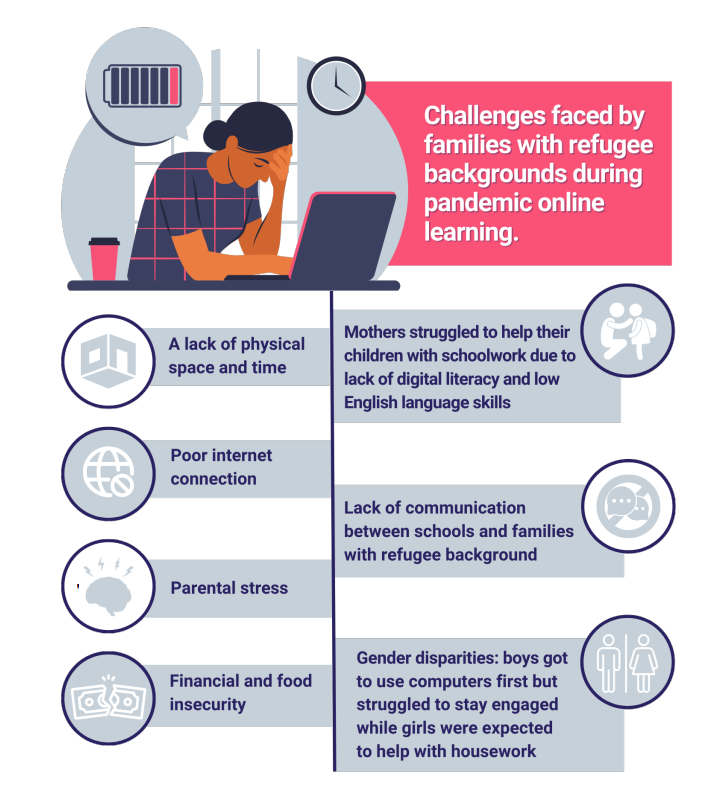Weathering the Storm: How African Families with Refugee Backgrounds Coped with Online Schooling during the 2020-2021 COVID-19 Pandemic
Research Team: Stacey Wilson-Forsberg1, Oliver Masakure1, Rosemary Kimani-Dupuis1, Jeremey Horne2, and Oluseun Olayinka2
Affiliations: Wilfrid Laurier University1, Adventure 4 Change (A4C)2
Research Partner: Adventure 4 Change (A4C)
Keywords: mothers with refugee backgrounds, refugee women, youth with refugee backgrounds, refugee youth, Horn of Africa, online schooling, COVID-19 pandemic, Southern Ontario, qualitative methods
Jump to: Full Infographic, Methodology, Findings
Summary
Overview: The research focused on the experiences and challenges faced by mothers with refugee backgrounds from The Horn of Africa (Somalia, Ethiopia, Eritrea) and their children as they attended high school during the COVID-19 crisis.
Objectives:
Research Justification: Managing the social and economic stress and uncertainty associated with the COVID pandemic was a major challenge for many parents. However, the situation was even more challenging for families with refugee backgrounds.
Infographic Excerpt

Methodology
The researchers conducted in-depth interviews and focus groups with 10 women and 18 youth residing in Waterloo, Ontario. The study used e-technology, phone conversations, and in-person interviews to connect with youth and parents. Two high school students with refugee experience led online discussions with youth about their experiences during isolation.
Findings
Explore more projects